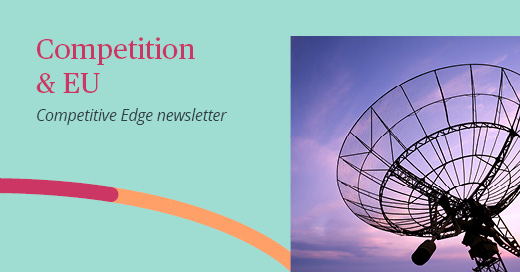ICO releases updated direct marketing guidance
The ICO has updated its guidance on direct marketing. At first sight, it looked like the revision was more extensive than, in reality, it was. The key changes are as follows:
- ICO enforcement
- Monetary penalty notices: New and up-to-date examples are provided for such notices issued in respect of breaches of the direct marketing rules. The ICO has also divided such examples into notices issued for: (i) making live marketing calls without prior consent; (ii) making automated marketing calls without prior consent; (iii) sending marketing emails without consent; and (iv) sending marketing text messages without consent.
- Marketing lists: The ICO changes the wording from "likely to" to "will" take enforcement action under the DPA against organisations who sell marketing lists without people's knowledge or consent.
- Market research
- The ICO now provides an example of 'genuine market research': "(for example, the purpose is to use market research to make decisions for commercial or public policy)."
- The ICO now also provides an example of what 'promoting their products' is in the context of explaining what an organisation cannot ask a market research firm to do: "(this will include asking the research firm to use the organisation's goods/services as a way to incentivise participation)."
- Not-for-profit organisations
The ICO has tightened up the wording in this section to ensure that it is clear that all not-for-profit organisations must comply with the direct marketing rules, and not just charities and political parties. The ICO reiterates the direct marketing rules as applied to not-for-profit organisations.
- Consent
- The ICO now provides examples for each element of valid consent i.e. "freely given, specific, informed and an indication specifying agreement."
- The guidance given in respect of what constitutes 'freely given' consent has changed. Previously, the ICO stated that consent simply cannot be a condition of subscribing to a service or completing a transaction. The position in the revised guidance is that consent can be a condition of subscribing to a service, provided that the organisation demonstrates how this indicates that the consent was freely given. i.e. this is no longer an absolute prohibition in respect of subscribing to a service.
- Implied consent: In this context, the ICO provides more information on what an organisation must demonstrate if it makes consent a condition of subscribing to a service and the considerations the ICO will take into account when assessing whether such consent is valid. An organisation must, in addition to the above, demonstrate why consent cannot be sought separately; and the ICO will take the following factors into account: (i) whether there is a choice of other services; (ii) how fair it is to couple consent to marketing with subscribing to the service; and (iii) whether this approach creates an imbalance between the individual and organisation.
- Methods of obtaining consent: The ICO reiterates that best practice for obtaining consent is to present a customer with an opt-in box requesting that they wish to receive marketing messages "via specific channels (e.g. post, email, live phone call etc.).", i.e. reiterating its recommendation that an opt-in box should be provided after each means of communication.
- Indirect consent
- It is no longer sufficient to simply "describe a specific category of organisation" that may send the customer direct marketing. Indirect consent will only be considered valid if the consent "very clearly describes precise and defined categories of organisations and the organisation wanting to use the consent clearly falls within that description." Further, the names of categories must be "tightly defined", "understandable to individuals" and "sufficiently specific that individuals could reasonably foresee the types of companies that they would receive marketing from, how they would receive that marketing and what the marketing would be".
- New guidance is given on the presentation by an organisation of marketing material relating to third parties. The ICO recommends that, while the organisation is not passing on its customers' contact details to a third party, it must ensure that it has appropriate consent from its customers to receive such marketing material.



